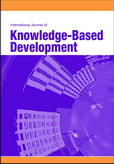Informal Networking - An Overview of the Literature and an Agenda for Future Research
Informal inter-organizational networks provide manifold opportunities to organize the transfer of information, knowledge and technology between actors. Given their potential and their importance, the lack of theoretical discussion and empirical research on informal networks and their dynamics is surprising. The objective of this paper is twofold. It attempts to review the fragmented academic discussion of the notion of informal networking, thereby focusing on how these relationships emerge initially and what conditions (presumably) are required to make them a mutually fruitful and sustainable channel of the transfer of information and knowledge. On that groundwork, the most important empirical studies which try to confirm and disentangle the aforementioned basic mechanisms of informal exchange relationships are reviewed. Finally, we outline an agenda of future research directions that we encourage researchers to pursue in future empirical studies. Five important research gaps can be identified.





